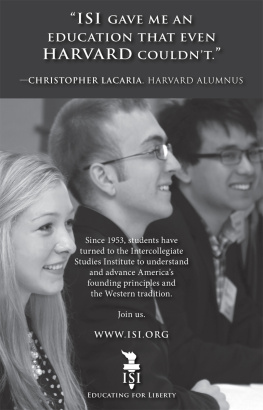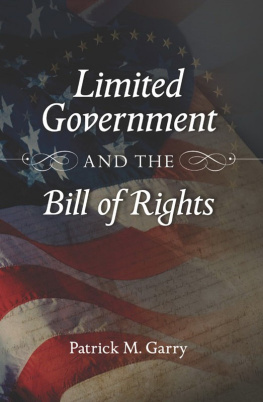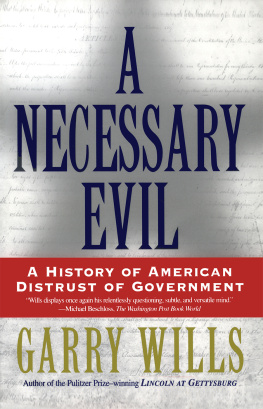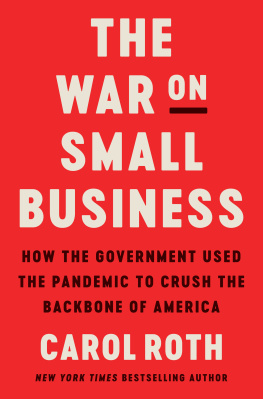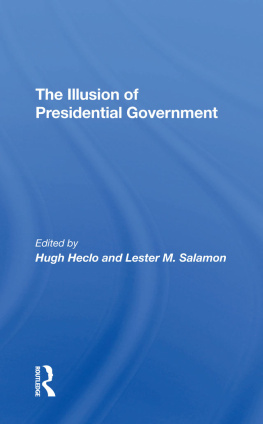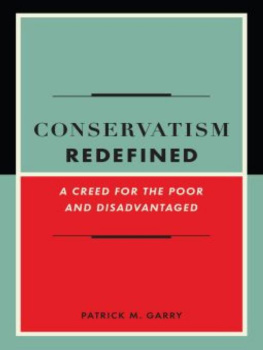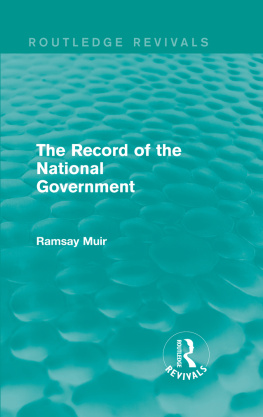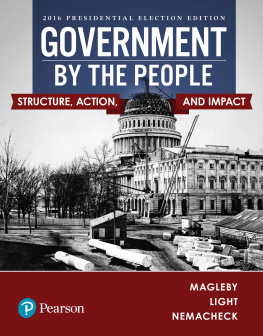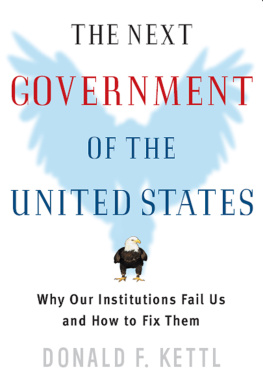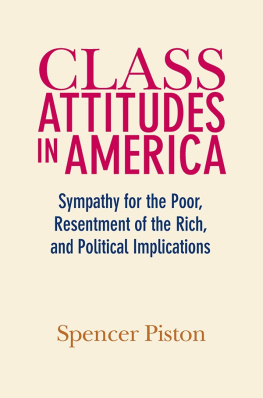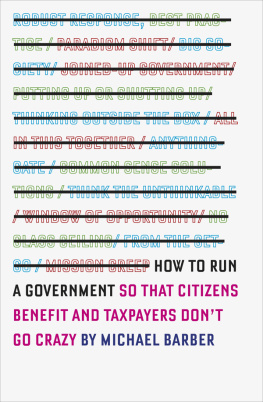PRAISE FOR THE FALSE PROMISE OF BIG GOVERNMENT
A powerful critique of the central premise behind most efforts to increase the size of government. Garrys argument is full of surprising and sometimes shocking evidence. It is timely and uncompromising.
Robert F. Nagel, Rothgerber Professor of Constitutional Law at the University of Colorado Law School
Garry explodes the most treasured myth of the behemoth of modern American governmentthat whatever stray inefficiencies it may display, it at least benefits the poor. Not so, he lucidly shows. Contrary to the rhetoric that has advanced the expansion of government, the most egalitarian antipoverty program we could have is a drastic reduction in the size of government.
Matthew J. Franck, director of the Witherspoon Institutes Simon Center on Religion and the Constitution
Patrick Garry has a gift for making sophisticated ideas accessible to lawyers and nonlawyers alike. In The False Promise of Big Government, he brilliantly argues that big government rewards the rich and the powerful at the expense of the average person. This is an important book that should be widely read.
Richard Duncan, professor of law at the University of Nebraska
In this readable volume, Garry convincingly demonstrates that governmental regulations and programs too often reinforce the status quo and serve the interests of the wealthy and politically connected. This book belongs on the shelf of anyone interested in the role of government in American life today.
James W. Ely Jr., professor emeritus of law and history at Vanderbilt University
Garry provides a clear-eyed analysis of the myriad ways in which government programs designed to help the poor and struggling actually do far more harm than good. Both compelling and compassionate, The False Promise of Big Government offers a searing indictment of our current War on Poverty. One cannot read this book without believing that we can do better.
Michael Tanner, senior fellow at the Cato Institute
In this important and timely book, Patrick Garry shows that despite the persistence of faith in bigger government and more regulation to help the little guy, it is typically the rich that reap the benefits of big government. Anyone interested in understanding how big government really works needs to read this book.
Todd J. Zywicki, George Mason University Foundation Professor of Law at the Antonin Scalia Law School
Garry makes a compelling case that bigger government not only fails to improve the life of ordinary Americans but actually harms them.
Elizabeth Price Foley, professor of law at Florida International University College of Law
In this bold and brilliant book, Garry takes on our overgrown government in the terms of its defenders: he systematically demolishes the argument that a larger government better serves the poor and vulnerable. It is simply essential reading.
Yuval Levin, editor of National Affairs
In this concise book, Garry uses concrete examples to show how and why big government inherently works against the very people it claims to help.
Bradley A. Smith, Josiah H. Blackmore II/Shirley M. Nault Professor of Law at Capital University Law School
the
FALSE PROMISE
of BIG
GOVERNMENT
How Washington Helps
the Rich and Hurts the Poor
PATRICK M. GARRY

Wilmington, Delaware
For Michael and Elizabeth
Contents
Introduction
EXPOSING THE MYTH OF BIG GOVERNMENT
Since the New Deal, advocates for a stronger federal government have used poor, working-class, and middle-class Americans to justify their crusade. The argument asserts that government offers the only protection against the predations of the rich and powerful. It is as if government and the private economy represent mutually opposed constituencies: the economy serves the rich and powerful, and government represents the average person. So, to oppose a growing federal government is to oppose helping our most vulnerable citizens improve their lives.
This, anyway, has been the argument for the past eighty years.
Consider the generalized claim that the political system should ensure justice and opportunity for the average American. This argument makes the automatic assumption that the bigger government is, the more it helps the common person. And underlying this assumption is another assumption: that only bureaucratic agencies in Washington, D.C., can lift up the average person in all the ways that society apparently hobbles him or her.
By taking this position, advocates of big government cast their opponents as calloused enemies of the common person.
But many opponents of an ever-expanding government also contribute to the myth that they are uncaring. They do so by relying mainly on two arguments against big government: the cost argument and the constitutional argument. The first says that a huge federal apparatus creates wasteful government programs and imposes too great an economic burden on Americans. The second holds that the federal governmentespecially through the unelected administrative statehas broken through the limits on its authority that the U.S. Constitution put in place.
Both of these arguments are correct. Massive government programs are wasteful and impose huge economic costs on Americans, and many of them contradict constitutional provisions. But these arguments have not been sufficient to counter the claims of those clamoring for more and bigger government.
Ultimately, these arguments fall short because they do not go to the heart of the issue. They do not address the fact that the claims at the very core of the case for big government are simply false.
The truth is that big government often hurts the very people it purports to helpthe poor, the working class, and the middle class. Actually, the problem is worse than that: big government frequently props up the rich, the powerful, and the politically connected.
This book does not focus on the arguments that limited-government proponents have traditionally used. Rather, it goes straight to the common-person justification for big governmenta justification whose only legitimacy lies in the staying power of myth.
THE POLITICAL CAMPAIGN FOR BIG GOVERNMENT
From the Progressive era, through the New Deal and the Great Society, and right up to the present, many influential people have pushed for an expanded governmental role in all areas of social, cultural, and economic life. Calls for bigger government are now the predictable response to any social need or political issue. Big-government promises hold special appeal during times of emergency, when the public looks for an immediate savior. This emergency mentality led, for instance, to the passage of the Dodd-Frank Act in 2010a law that substantially expanded, in ways that could not even be defined by the law, government regulation of the financial-services industry, from megaWall Street investment firms to small-town banks. Once the emergency passes, a more sober and rational public often reassesses the need for a bigger governmentbut by then, expanded government has been entrenched in law.
Recent experience bears out the constant growth of government. From 2000 to 2016, federal spending more than doubled, from $1.79 trillion to $3.85 trillion. Nearly 100,000 new federal rules have been issued since 1993, and the tax code is more than four million words long. According to the Competitive Enterprise Institute, federal agencies in 2016 issued 3,853 regulations, while Congress passed 214 new laws. Thats 18 rules for every law enacted.

